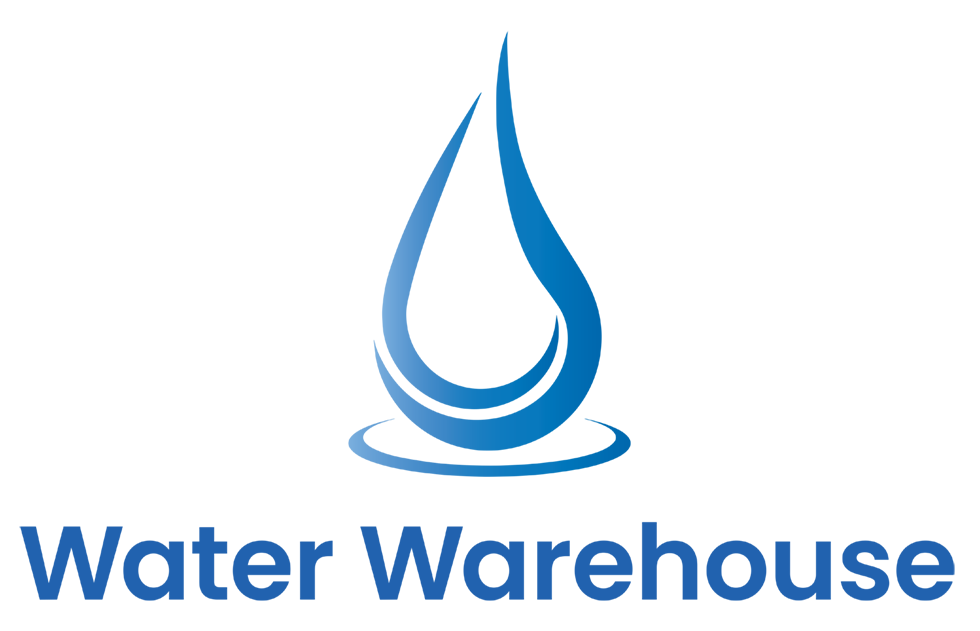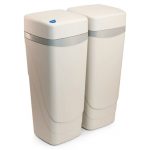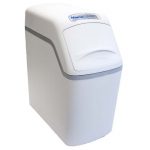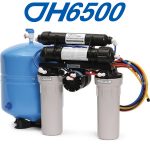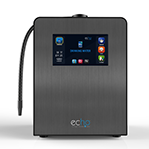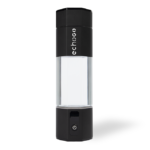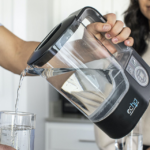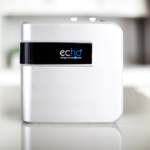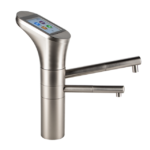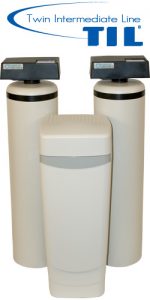Frequently asked questions
Actually, there are three types of water: Utility Grade Water, Working Grade Water and Drinking Water. Utility grade water is water suited for watering your lawn and plants. It usually requires no water treatment. Working Grade Water needs to be higher quality because it runs through your plumbing, fixtures and water-using appliances. To make these essential household systems last longer and save you money, treated water is needed. Drinking Water is a key component of our lives. Since 70% of the human body is water, the water we drink and cook with must be the highest quality.
Yes. The test should include a minimum of hardness, iron, and pH. Your independent Hague dealer has the equipment to test your water accurately. The Hague representative can also demonstrate the value of clean, soft water – and the cost of untreated water.
Yes, the WaterMax® is made in America by Hague Quality Water International, the oldest major water treatment manufacturer, under continuous family ownership. The Hague family has been selling its products in the United States with worldwide distribution since 1960.;
Competitors can’t offer the same guarantees as Hague does because their products do not match the quality of the WaterMax® system.
Studies done in the 1970’s at the University of Wisconsin concluded that salt-brine discharge from water softeners had no ill effects on the operation of typical anaerobic or newer style aerobic home treatment systems. It was also confirmed that water softener regeneration discharge did not hurt drain field soil percolation and in some cases could improve soil percolation. Septic tank effluents containing water softener effluents include substantial amounts of calcium and magnesium, which balance the effect of sodium, in addition to promoting and sustaining soil permeability. According to the study results, it is preferable to discharge water softener waste to septic systems than to separate dry wells or ditches. Learn more at www.wqa.org.
Magnetic or electronic devices (known as “descalers” in the water treatment industry) are available on the market. They are not actual water softeners because they do not remove the hardness from the water. They can be useful for preventing scale build-up in pipes and appliances, but they do not provide softened water or its benefits.
The calcium and magnesium in hard water are removed by resin beads as it flows through the system. Hardness ions in the water are replaced with the soft ions of the resin beads in an exchange process to create the soft water. Once the water softener resin beads become coated with calcium and magnesium ions, their ability to soften hard water decreases. Regeneration is a process during which water is flushed through the water softener with a concentrated amount of regenerant. Resin beads exchange the soft ions from the regenerant for the hard ions. The patented self-cleaning dirt and sediment filter in the WaterMax® whole house water filtration system sends dissolved dirt, rock and sediment down the drain. Following restoration of the resin beads, the water softener goes back to work, providing the entire home with soft, clean water.
Water softeners come in an array of sizes. While it might seem that bigger is better, this is not necessarily true. The WaterMax® system utilizes smaller beads and a fine mesh resin that provides more filtration surface area to soften water. The vacuum-packed resin provides maximum capacity in a minimal amount of space. The patented Directional Flow Screen system is another feature that makes the most efficient use of the resin beads. With the WaterMax®, the resin bed is protected by screens and the whole-house dirt and sediment filter so space is not wasted on freeboard, the empty area in conventional water softeners that allows a churning of resin during regeneration.
Water that has been treated with a water softener has many benefits over hard water:
Housework is easier without having to deal with hard water build-up on fixtures and appliances.
Clothes laundered in soft water wear better, lasting up to 30% longer.
WaterMax® will provide fabrics that stay softer and whiter without the dingy gray caused by hard water.
Soft water cleans silverware, dishes, and glassware better, leaving a shinier finish.
Soaps and shampoos work more effectively because soft water allows them to lather better, enabling you to use up to 75% less product.
Organic, chemical-free healthy soaps and laundry products perform better with soft water.
Hair and skin feel softer and cleaner after bathing with softened water
Water using appliances such as dishwashers, washing machines, and coffee makers last much longer when used with soft water.
As the most efficient water softener available, the WaterMax® is good for you and the earth.
With soft water, it may actually seem like soap and shampoo have not completely rinsed off your skin. This sensation is caused by the fact that there is no dissolved rock in your water. The water’s natural softening and moisturizing agents can do their job, and thoroughly clean skin and hair. Conversely, this is why hard water can cause skin pores to clog with soap residue, leaving skin dull and hair feeling dry.
Outdoor installation is common in temperate climates. WaterMax® is designed with UV-resistant materials to allow outdoor installation.
Never. The whole-house sediment filter is built-in and self-cleaning. Every time the system recharges, dirt and sediment are sent down the drain.
It is best to have well water tested for hardness, iron and pH. City water should be checked for hardness, pH and chlorine. Contact us to schedule a FREE in-home water test so we can identify your water problems and determine the right water solution for your home.
Hard water leads to build-up in plumbing and water-using appliances, creating a restricted flow of water. In appliances such as washing machines and dish washers, the build-up can ultimately lead to the need to service or replace these items more frequently. In hard water areas, it is not unusual for the flow of running water through household water lines to be reduced to the size of a ball point pen head.
Hard water forms build-up in appliances, which can require as much as 33% more fuel to heat water in a water heater. The reason is that additional energy is required to heat hard water scale before it can heat your water. Since soft water eliminates hard water scale issues, the result will be lower energy costs.
The only household appliance that can actually reduce costs, a water softener can reduce water-heating bills by up to 29%. Soft water also requires less detergent and soap usage, so water softeners save you money on these items as well.
The answer depends on the type of iron you have in your water. There are three different types of iron water – ferric, ferrous, and iron bacteria. It is necessary to evaluate the kind of iron in your water before diagnosing what is needed to solve your iron issues.
WaterMax® is the only system with a multi-compartment tank and offers different media configurations. This system allows you to customize The Right Solution™ for your specific water treatment needs. The advantage offered by WaterMax® is that whole-house water treatment occurs in a single piece of equipment. To accomplish the same results, competitors must use a network of different models.
The smart softening system of the WaterMax® does not permit regenerant or salt to enter the drinking water supply when in operation. The regenerant is only used to clean the resin inside the tank, which is then flushed down the drain during regeneration.
A frequent misconception is that water from a water softener contains too much sodium for consumption. In reality there is only a small amount of sodium in soft water. The average amount of sodium in a quart of water from a water softener is 75 to 100mg, which is less than the amount of sodium in a slice of bread. However, if this small amount of sodium is a concern, a WaterMax® system can use potassium chloride to regenerate the water softener. A Reverse Osmosis system can be used with a water softener to provide sodium free drinking water.
Though it may not be noticeable to the naked eye, iron may be in your water. Once it is exposed to air, the iron oxidizes, leave rust colored stains on clothing, showers, sinks, and fixtures.
Municipal water treatment facilities commonly use chlorine to treat water. It is often detectable in tap water due to taste and smell. While chlorine is effective for removing dangerous bacteria from the water supply, chlorine can objectionably affect drinking water by irritating eyes and skin. Since the chlorine has already served its purpose by the time water reaches your faucet, the WaterMax® MaxPack can safely remove it from your water.
Hydrogen Sulfide is often the reason for this unpleasant smell. Hydrogen Sulfide may be created by decaying organic matter, some types of bacteria, and petroleum refining. If the rotten egg smell is only present in hot water, it may be the result of a deteriorated anode on a water heater system.
The elements found in well water may vary so not all well water is the same. This is true even among wells that are within close proximity of each other. Common well water issues include sediment, dirt, hardness, bacteria and iron. It is necessary to have your well water tested before the proper treatment for your water can be determined.
Quality. Nobody beats Hague’s quality. Ask your independent Hague water softener dealer for a copy.
Because of the Watermax® Systems Control, you do not have to change, alter or modify anything. If no water is used, there will not be a recharge. If you have guests, you may have additional recharges.
The smart design of the WaterMax® allows it to be customized to meet your specific needs. Everyone’s water supply can be different, so we will perform a complete analysis of your water supply to assist you in finding the right WaterMax® for your home.
The built-in and self-cleaning whole-house sediment filter in the WaterMax® means filter changes are never required. Sediment and dirt are removed and washed away as the system recharges.
